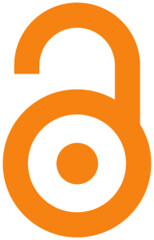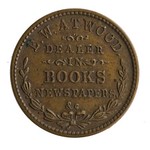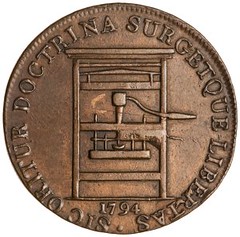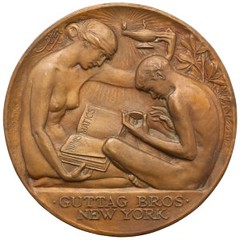
PREV ARTICLE
NEXT ARTICLE
FULL ISSUE
PREV FULL ISSUE
THE ANS POLICY ON OPEN ACCESS TO PUBLICATIONS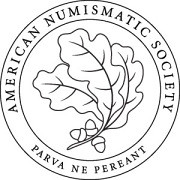 ANS Publications Director Andrew Reinhard outlined the society's approach to Open Access to its publications in a January 14, 2016 post
if the ANS Pocket Change. Here are a few excerpts, but be sure to read the complete article online for a thorough review of the current
landscape for academic and scholarly publications. -Editor ANS Publications Director Andrew Reinhard outlined the society's approach to Open Access to its publications in a January 14, 2016 post
if the ANS Pocket Change. Here are a few excerpts, but be sure to read the complete article online for a thorough review of the current
landscape for academic and scholarly publications. -Editor
Why the American Numismatic Society is Open Access . . . and why your institution, learned society, publisher, etc., should be, too
As you read the points below, I challenge you to formulate arguments against each one that does not include money. Profit and loss in academic publishing is a very real concern, but it can be demonstrated (and has been in my nine years of experience as an academic publisher) that publishing niche scholarship is (and likely always will be) a money-losing venture. Publication is often built into the mission statements of learned societies, and funding needs to be sought from sources beyond book sales and journal subscriptions to keep the publishing enterprise sustainable. The ANS has addressed each of the following problems in its efforts to make published research open without taking a hit financially.
Here are just a few of the publishing problems addressed in the post. Some are very specific to academic publishing; see the complete
blog post for more information. -Editor
Problem: Profit-Based Publishing
What the ANS is Doing About It: The ANS favors a mission-based approach to publishing. It understands that some publications will never recover their production costs, but nevertheless that the content is exceedingly important in fulfilling the Society’s stated goals for research and dissemination of that research. Problem: Print-Only Publishing
What the ANS is Doing About It: The ANS will continue to produce print editions of scholarship, but it will make digital editions of all of its publications past, present, and future available online as Open Access. Doing so allows the ANS to play well with others, to be a good academic citizen, and to contribute to the work of others. By sharing publications openly, this guarantees that multiple copies will be made and circulated thereby preventing loss of that content should something happen to the original publisher. Conclusions
The end goal of the production of that scholarship should not be to make money, but instead to advance the humanities, arts, and sciences. The best way to do that is to make that scholarship available immediately to the world upon publication. Openly. The ANS hopes that other institutions, learned societies, and publishers will share in this approach to placing published work online without cumbersome restrictions. The Internet is genetically predisposed to facilitate such sharing, which makes it the greatest enabler of advancing our collective intellectual enterprise.
Again, see the complete post for more information. Many thanks to the American Numismatic Society for their commitment to freely share
important material with the community. -Editor
To read the complete article, see:

Wayne Homren, Editor The Numismatic Bibliomania Society is a non-profit organization promoting numismatic literature. See our web site at coinbooks.org. To submit items for publication in The E-Sylum, write to the Editor at this address: whomren@gmail.com To subscribe go to: https://my.binhost.com/lists/listinfo/esylum All Rights Reserved. NBS Home Page Contact the NBS webmaster 
|
